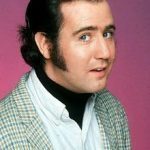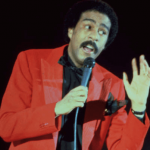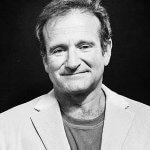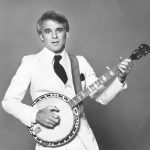
For professionals (or aspiring pros) who depend on questioning everything and looking at old ideas in a new way, it’s ironic that we’ve been unwilling to question something so fundamental to comedy… and something so fundamentally wrong with comedy.
Somewhere down the road, we began assuming stand-up comedy and joke-writing/joke-telling were the same.
In fact, we’re so good at misdirection that we have the pattern of a Broken Assumption joke set in stone:
- Setup: Here’s what we all assume to be true.
- Punchline: Surprise! Surprise! … it’s not true!
Here’s some food for thought…
You Prefer Funny Stories Over Conventional Jokes
Which would you rather listen to? A lawyer joke or a story about going to court? You’d choose to hear the story because stories are how people naturally share humor. That’s how human beings like to connect to other human beings… through story.
The only time anyone has said, “That comedian is a hack” is when the comedian is joke-telling… not when they were being authentic and sharing their natural humor with the audience.
You could literally choose the most hacky stand-up comedy topic possible (like airplane food is so bad) and get my audience engaged in the story just by being real with them.
It feels better to listen to a real, authentic story than a joke or series of jokes revolving around a topic. When you (and audiences) are listening to “a joke,” you know that you’re being “joked at.”
When someone says “Let me tell you a joke,” what you really think in your head is “F***, this is going to be awful.”
YOU DON’T LIKE JOKE-TELLERS:
When somebody is telling you a joke in real life, you know that they’re repeating words they heard from somebody else, or, if they’re a comedian… you know that they’re repeating words at you that they wrote sometime in the past. Either way, it’s safe to say that you never really connect with the joke teller. There’s an invisible wall between you that was placed there by the joke.
YOU DON’T LIKE TELLING JOKES:
Before being taught that “comedians have to write jokes,” how many actual jokes did you tell people? How many times a day would you say a setup line like “2 men walk into a bar…” or “How many blondes does it take to screw in a lightbulb?” For the majority of comedians, this number is zero.
If you compare your pre-stand-up comedy life (where you used your natural sense of humor) with your joke-writing life… you would have to admit that you were a lot happier and a hell of a lot funnier before being told you “must write jokes if you’re serious about comedy.”
If you’ve been in comedy for more than a year, you can also identify with another problem with jokes… they’re unfulfilling. Just like it’s hard for the audience to connect with you when you’re being unreal with them by telling jokes… it’s also difficult for you to feel a connection.
If you don’t have much experience in comedy yet, just imagine how motivated you’ll be a year from now to wake up and try to write 10 jokes about lamp-shades. Early on, it’s incredibly rewarding to get ANY kind of a laugh as a new comedian… we all went through this period of our careers. But after the “Oh My God… I actually got a laugh on stage” period is over… then what? How are you going to move from open mics to semi-pro? How are you going to become a professional?
YOU DON’T LIKE WRITING JOKES:
If you compare how much fun you’re having when you’ve got all your friends laughing with how you feel “writing jokes”… which would you rather be doing? There’s no comparison. Using your natural sense of humor is always more enjoyable… whether you’re talking with friends or writing stand-up.
But if a comedy teacher tells you that there’s “only 1 way to write jokes” and that you have to:
- find a topic
- create a setup line
- create a list of all the assumptions the audience would have
- then write a punchline that breaks those assumptions
- repeat #1-4 until you have 45 minutes of “jokes”
… how much fun would that be?
For those of you who have already been taught this method… answer this honestly… Have you ever had a “peak experience,” that is to say, have you ever thought “Yes. This is what I was meant to do with my life. This is what I love. I can happily do this until the day I die” while you were using joke formulas? Not a chance.
So …
Why do super-successful comedians say the exact opposite of what comedy teachers teach?
Remember this: Creativity is the weapon of choice for those who want to live a significant life.
How significant your career becomes will be directly determined by how remarkable you are as a comedian, not by your joke-writing or joke-telling ability.



S
These comedians and many, many more have been on record as stating that their success wasn’t due to conventional tactics … In fact, they say the exact opposite: that their success didn’t occur in spite of not using jokes, but because they didn’t use them.
There is nothing unique, memorable, or remarkable about jokes written through a joke writing formula
So ask yourself these questions: How would your career change …
- … if you un-joked your material?
- … if you were real and authentic with the audience?
- … if you embraced your natural sense of humor instead of attempting to squeeze it into a pre-made joke writing technique?
The person with answers will assume. The person with questions will explore. Allow yourself to have more questions than answers. It’s a sign of strength, not a sign of weakness.
~ Jared Volle, M.S. (Comics Rock Convention)
